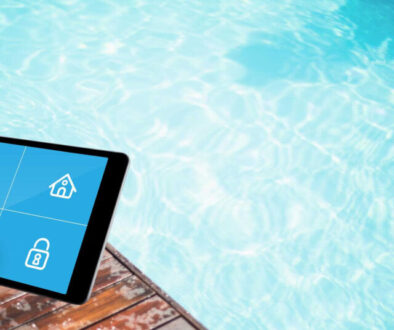Integrating Smart Pool Monitors for Remote Problem Detection
Discover how integrating smart pool monitors can revolutionize remote problem detection, ensuring your pool is always in top condition.
In the era of smart technology, integrating smart pool monitors into your pool maintenance routine can significantly enhance your ability to detect problems remotely. Gone are the days of manual checks or waiting for issues to arise; these innovative devices provide real-time feedback on various aspects of your pool’s health. This blog post aims to explore the importance of smart pool monitors, how they work, their benefits, and best practices for integrating them into your routine. Whether you’re a pool service professional or a homeowner, understanding this technology can lead to significant improvements in pool maintenance efficiency and overall satisfaction.
IntroductionThe concept of smart technology has permeated many aspects of our lives, from home automation to personal health tracking. In the pool maintenance industry, smart pool monitors are becoming increasingly vital to ensure optimal pool conditions. These devices can help you manage the water quality, temperature, and even detect potential problems before they escalate. This blog post will dive deep into how these monitors work, their benefits, and how you can successfully implement them in your pool maintenance routine.The Functionality of Smart Pool Monitors
– Smart pool monitors utilize sensors to keep track of various parameters such as pH levels, chlorine concentration, water temperature, and even debris levels. These sensors continuously analyze the water and send data to a central app or system, allowing users to monitor their pools remotely.- According to recent studies, pools that are regularly monitored show a 30% reduction in chemical use due to early detection of imbalances. This not only saves money but also contributes to environmental sustainability.- For example, if a smart pool monitor detects a drop in chlorine levels, it can alert the owner immediately via a smartphone notification, allowing them to take action before algae growth becomes a problem.
Benefits of Smart Pool Monitoring
– One of the most significant advantages of smart pool monitors is the ability to perform remote management and troubleshooting. With the right app, pool owners can receive alerts and notifications in real-time, making it easier to address issues promptly.- Additionally, these monitors can help save time. Traditional pool maintenance often involves scheduled visits and manual checks, which can be time-consuming. With smart monitoring, pool service professionals can optimize their routes and focus on pools that need immediate attention.- Smart pool monitors also enhance water safety. Maintaining appropriate chemical levels is crucial for swimmer health, and constant monitoring helps ensure that the water remains safe for use.
Case Studies: The Impact of Smart Monitors
– Many pool service companies have already started incorporating smart monitors into their offerings with great success. For instance, a pool service company in Florida reported a 40% reduction in customer complaints after implementing smart monitoring systems.- In Texas, another company saw a marked increase in customer retention by offering smart monitoring as part of their service packages. Customers appreciated the proactive approach to pool health, leading to a significant boost in referrals and new business opportunities.- By providing real-time data and alerts, these businesses could prioritize their service calls, leading to improved operational efficiency and customer satisfaction.
Best Practices for Integrating Smart Pool Monitors
– When integrating smart pool monitors into your routine, it’s essential to select the right model that fits your specific pool type and size. Look for monitors that offer comprehensive features such as real-time monitoring, water chemistry balancing, and user-friendly app interfaces.- Regularly update your monitoring system to ensure you’re taking full advantage of any new features or improvements. Many manufacturers frequently release software updates that can enhance performance.- Educate yourself and your team on how to interpret the data provided by the monitors. Understanding what the readings mean will enable you to make informed decisions about pool maintenance and water quality management.
Exploring Market Trends in Smart Pool Technology
– The demand for smart pool technology is on the rise, with a growing number of homeowners seeking efficient ways to manage their pools. The market for smart pool monitors is expected to grow significantly over the next few years.- As more companies enter the smart pool technology space, features such as automation, AI-driven analytics, and predictive maintenance models are becoming more common. These advancements enhance user experience and streamline pool management.- Pool service businesses looking to stay competitive should consider adopting these technologies to attract more customers and differentiate themselves from competitors offering traditional monitoring methods.
Challenges and Considerations
– While the benefits of smart pool monitors are numerous, there are challenges to consider as well. One potential barrier is the initial investment cost. Homeowners and pool service providers may need to weigh the upfront cost against the long-term benefits.- Additionally, technical issues can arise. Connectivity problems or software glitches could lead to misinformation if not addressed promptly. It is crucial to have reliable customer support from the manufacturer to resolve these issues quickly.- Finally, education is paramount. Some users may find the technology intimidating or confusing, which could lead to underutilization. Providing training sessions or resources can help demystify the technology and encourage its adoption.
Future Innovations in Pool Monitoring
– The future of smart pool monitoring is bright, with ongoing innovations expected to enhance functionality and user experience significantly. For example, the integration of AI could lead to more accurate predictions regarding maintenance needs and water quality issues.- Furthermore, advancements in IoT (Internet of Things) technology will likely enable more seamless communication between different pool components, such as pumps, heaters, and lights. This interconnectedness can lead to smarter and more efficient pool management overall.- Sustainable practices are also in focus. With increasing attention to eco-friendly solutions, future smart pool monitors may incorporate energy-efficient features to help minimize water and chemical usage.
Conclusion
In summary, integrating smart pool monitors into your pool maintenance routine can revolutionize how you manage your pool. These devices provide real-time insights into water quality and pool health, allowing for proactive management and enhanced customer satisfaction. With the growing trend towards smart technology in the pool maintenance industry, it is crucial to stay ahead by adopting these solutions. Whether you’re a homeowner or a pool service professional, investing in smart monitoring systems will not only improve efficiency but also contribute to a safer swimming environment. For those interested in exploring pool service opportunities, don’t hesitate to check out Pool Routes for Sale and discover how you can enhance your business operations with smart technology integration.



